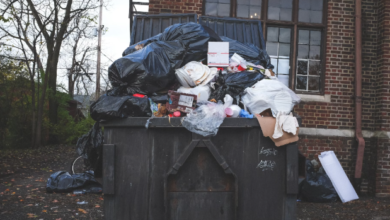From Chaos to Compliance: Navigating Complex Waste Regulations with a Professional Guide

Waste management in the contemporary business environment is no longer a mere rudimentary exercise of dumping. Nowadays, it is a complicated and strictly regulated sphere in which one step only can result in severe financial fines, court sessions, and the destroyed reputation of a company. For businesses of all sizes, from small enterprises to large industrial corporations, the sheer volume and intricacy of waste regulations can feel like an overwhelming labyrinth. This is where the role of a professional waste consultants guide becomes not just an asset, but an essential partner in transforming chaos into a clear, compliant, and efficient process.
The journey from generating waste to its final, responsible disposal is fraught with potential pitfalls. It requires an intimate knowledge of federal, state, and local laws, an understanding of complex classifications, and a commitment to best practices that safeguard both the environment and public health. Attempting to navigate this on one’s own can be a costly and risky endeavor, turning a routine operational function into a major liability.
The Labyrinth of Regulations: A Multi-Layered Challenge
The regulatory environment surrounding waste management is a multi-layered challenge. At the federal level, agencies set broad standards for handling, transporting, and disposing of various types of waste, particularly hazardous materials. However, these national regulations are often augmented and sometimes even superseded by more stringent state and local laws. This creates a patchwork of requirements that can change depending on a company’s location, the type of waste it generates, and the industry it operates in.
For a business, this means that what is compliant in one location may be illegal in another. Furthermore, regulations are not static; they are constantly being updated to reflect new scientific understanding, technological advancements, and evolving public policy. Staying on top of these changes requires a dedicated effort that most businesses are not equipped to handle internally.
The Hidden Costs of Non-Compliance
The economic consequences of inability to adhere to waste laws may be fatal. The fines are as low as hundreds to hundreds of thousands of dollars per violation and at times, per day the violation remains in effect. Regulatory bodies may bring suits that cost the company a lot of money and legal fees. Beyond these direct financial hits, non-compliance can have significant indirect costs.
A negative incident, such as an improper waste spill or a violation that receives public attention, can cause immense reputational damage. Consumers and business partners are increasingly concerned with environmental responsibility, and a company seen as reckless or non-compliant can face boycotts, lost contracts, and a tarnished brand image that takes years, if not a lifetime, to rebuild. A professional waste guide, therefore, offers a form of insurance, protecting a company’s financial stability and its public standing.
The Guiding Hand: What a Professional Guide Provides
A professional waste management guide may be a specialized consultant or a partner in an all-waste provides company, both who can offer much experience and materials to the board. Their role is to demystify the complex regulations and provide a clear, actionable plan for compliance and efficiency.
They also usually provide their services with the assistance of a thorough audit of waste. This includes literally a full assessment of any materials that a business put out to waste be it your general waste in the office through to more specific industrial by-products. They classify each type of waste according to regulatory standards, identifying what is non-hazardous, what is recyclable, and what is considered hazardous and requires special handling. This initial assessment is the foundation of a tailored waste management strategy.
Following the audit, the guide develops a plan that ensures all waste is handled, stored, transported, and disposed of in strict accordance with all applicable laws. They establish protocols for proper segregation, labeling, and documentation, creating a clear chain of custody for all waste materials. They also provide training for employees, empowering them to understand and follow correct procedures, which is critical for maintaining compliance on a day-to-day basis.
Conclusion: A Necessary Investment for a Sustainable Future
In an age where environmental responsibility is non-negotiable, navigating the complexities of waste regulations is a fundamental requirement for any business. The journey from chaos to compliance is not an easy one, but it is an essential one. By investing in a professional waste management guide, businesses secure a knowledgeable partner who can demystify regulations, prevent costly errors, drive operational efficiencies, and enhance their commitment to sustainability. This partnership is more than just a smart business decision; it is a necessary step towards building a resilient, responsible, and sustainable future.




